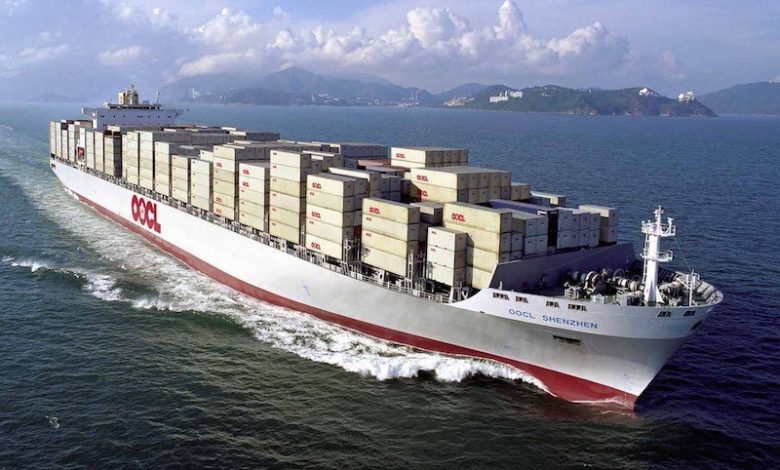Cartel concerns resurface in wake of OOCL sale

Shippers are getting concerned by the dramatic drop in choice of carriers in the wake of the unprecedented consolidation seen in the container shipping space.
Moreover, as the container shipping sector digests the news of Cosco Shipping’s $6.3bn bid for Orient Overseas (International) Limited, the parent of OOCL, the dynamics of individual tradelanes are set for a significant shake-up.
Olaf Merk, the ports and shipping expert of the International Transport Forum at the OECD, noted on Twitter that with the Cosco takeover the market share of the top four carriers would stand at 53.8%. Data compiled exclusively for Splash by Drewry Maritime Research shows the top four carriers two years ago only had a 40.7% global market share.
“The container shipping industry has ‘officially’ become an oligopoly,” Merk wrote.
James Hookham, deputy CEO of the UK’s Freight Transport Association and a director of the Global Shippers Forum, told Splash today: “The choice and quality of service available to Asian shippers is under threat from the convulsions that are transforming the container shipping sector.”
Hookham said the Global Shippers Forum was determined that these new structures are not used to “smuggle back discredited cartelising behavior” into the market by shipping lines.
“Our call is for shipping lines to abandon their business models of the past and enter into meaningful engagement with their customers to better understand the dynamics of world trade and develop improved service offers and reliability for their customers,” Hookham said.
The latest box shipping deal, which will see Cosco leapfrog CMA CGM into third spot in the global liner rankings, will be felt most keenly on the transpacific and intra-Asia trades.
The combined entity will rank number one on the transpacific with a capacity to move a weekly average of 77,208 teu between Asia and North America, based on end-May data from Alphaliner.
Cosco Shipping will get bridging loans from Bank of China to help fund the purchase that will see its container fleet balloon to more than 400 vessels, equivalent to around 2.9m slots.
Bloomberg data suggests the Tung family, which controls just under 70% of listed OOIL, will pocket about $1bn from the sale.
Former Hong Kong chief executive Tung Chee-hwa’s personal net worth will increase by about $400m to $2.9bn, according to the Bloomberg Billionaires Index, while his younger brother Tung Chee Chen will take home about $600m from the sale, boosting his net worth to about $3.8bn when the deal is completed.
Analysts Drewry, who said OOIL was the “perfect bride” for Cosco, noted in a report that the era of consolidation might now be drawing to a close for container shipping.
“The sale of OOIL/OOCL means there aren’t many other takeover candidates left on the shelf. Such is the scale of the carriers within the top 7 that any merger within that group would find it difficult to pass regulatory approval. There could still be some minor regional acquisitions but the big wave of container M&A looks to have been concluded with this deal,” Drewry maintained.
Lars Jensen, a regular Splash contributor and the founder of Seaintelligence Consulting, concurred with the Drewry viewpoint. “We are nearing the end-game of consolidation in relation to the global carriers. The next developments to unfold over the coming five to 10 years will be a further consolidation in the fragmented intra-regional trades,” he told Splash today.
Drewry’s position on consolidation was questioned however by OECD’s Merk, who, writing on his own blog, Shipping Today, mused whether European politicians might enter the fray as a defensive measure, with Cosco seen to be sizing up France’s CMA CGM.
“Over the coming months the Chinese will no doubt test the resolve of the French to block sales of CMA CGM shares to China. The French state might even consider to buy shares in CMA CGM to pre-empt the Chinese from doing so, which might be a logical consequence of the French discussion this year on what constitutes a strategic merchant fleet. However, one could wonder if this is a sustainable long-term solution,” Merk wrote, adding: “Given the recent re-emergence of the French-German axis and the growing assertiveness in Europe vis-à-vis China, another solution might make political sense. A joint French-German carrier, partly state-owned, with potential complementary networks would not only be a powerful expression of that new political reality, but also suddenly become the world’s largest carrier. For this to happen, the French president would – for a start – need to go to Hamburg…”
